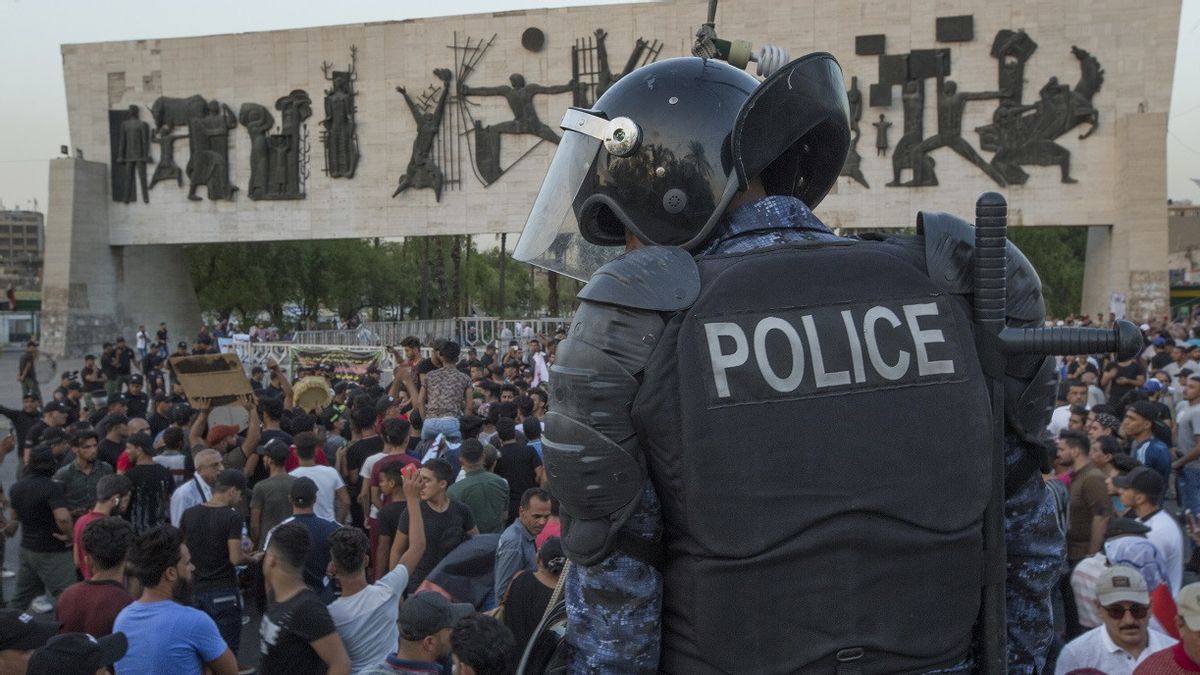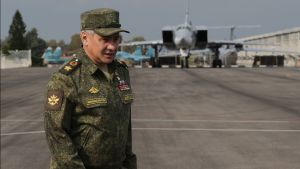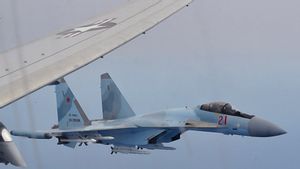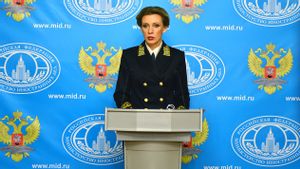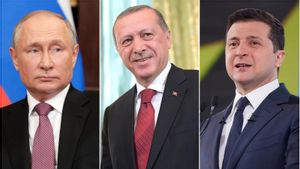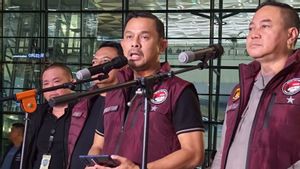JAKARTA - Nearly 12.000 Iraqi officials, including 54 ministers, were involved in corrupt deals last year, the country's integrity commission said on Wednesday.
Iraq's anti-corruption agency announced that about 11.605 officials were investigated and 15.290 charges were filed against them. The rate of penalties for corruption by commissions is usually very low despite the high number of investigations.
The commission's report said, although many people were found guilty by the commission, only 632 were convicted. In addition, many individuals were investigated in absentia.
"Among the defendants are 54 ministers who face 101 charges, in addition to 422 defendants of special rank and general manager who face 712 charges of corruption," said a report by the Iraqi News Agency, as quoted by The National News February 17.
Non-ministerial ranks refer to special appointments within the ministry, which are often given on the basis of loyalty to a political party.
Iraq has 22 cabinet positions, but several ministers still face charges even when they are not in office. In some cases, convicted ministers have been sentenced on charges that occurred years ago.
On February 14, former Minister of Construction, Housing, Municipalities and Public Works Riad Al Gharib was sentenced to two years in prison for alleged misappropriation of public funds during Nouri Al Maliki's first term, in 2007.
The latest report said that of the 12.000 officials, 632 were convicted, among them a minister, according to the report.
"Forty-two assessments of 32 high-ranking people in government including those who were general managers were also made," the report said.
Of those convicted, 224 officials were tried in their absence. In addition, the commission has opened 116 cases against officials convicted abroad, including six ministers.
The corruption agency has also orchestrated cases to "recover money smuggled mainly from ministers and high-ranking people," the report said.

Although arrest warrants have been issued for ministers and senior officials in the past, many politicians have managed to evade justice because of their affiliation with powerful political groups and able to exert pressure on the judiciary.
Some of Iraq's most powerful politicians have made fighting corruption their goal, but to date, successful prosecutions have been mostly against low-ranking officials.
Corruption is rampant in Iraq and where ministers are arrested or removed from office. They often say the accusations against them are politically motivated.
Last May, Iraqi President Barham Salih said nearly $150 billion had been smuggled out of the country in corrupt deals since 2003.
It is known that since the US-led invasion that toppled Saddam Hussein, the misuse of public funds has become part of the political culture in the war-torn country.
Prime Minister Mustafa Al Kadhimi launched an anti-corruption committee soon after he took office, following similar initiatives by former prime minister Adil Abdul Mahdi and former prime minister Haider Al Abadi.
Last month, the former head of Baghdad's investment commission was sentenced to four years in prison for corruption by an Iraqi court. Shakir Al Zamili, who is being investigated in six other corruption cases, was sentenced on Sunday evening.
"The Criminal Court in Karkh sentenced the defendant, Shakir Al Zamili, to four years in prison and a fine of 10 million Iraqi dinars," the court said. The sentence was handed down based on the findings of the integrity commission.
SEE ALSO:
To note, Iraq ranks 160th out of 180 countries in Transparency International's corruption perception index for 2020. This survey is based on interviews with leaders in the business community as well as experts and consultants.
Meanwhile, the UN envoy to Iraq, Jeanine Hennis-Plasschaert, last year emphasized how corruption has taken over Iraqi state institutions and the need to tackle it.
"Corruption remains endemic, and the economic costs are incalculable as it continues to steal much-needed resources from everyday Iraqis, eroding investor confidence," he said in a speech to the UN Security Council.
The English, Chinese, Japanese, Arabic, and French versions are automatically generated by the AI. So there may still be inaccuracies in translating, please always see Indonesian as our main language. (system supported by DigitalSiber.id)
